What is a Skincare Brand?
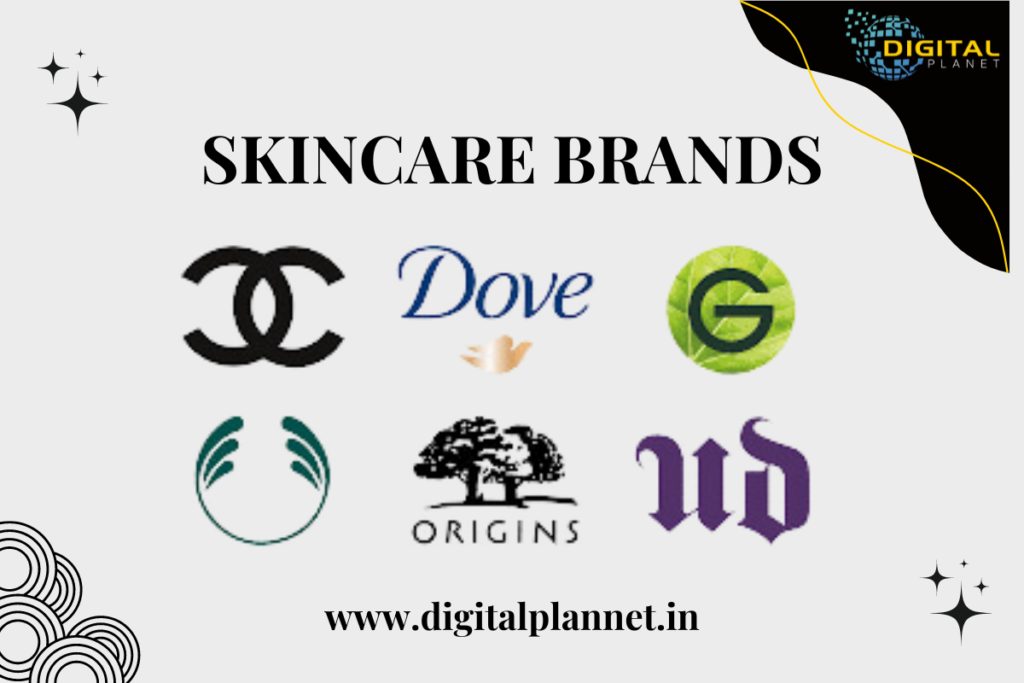
A skincare brand is a company or entity that specializes in creating and marketing products designed to care for the skin. These brands develop a range of skincare solutions, including cleansers, moisturizers, serums, and treatments aimed at improving skin health, addressing specific concerns like acne or aging, and enhancing overall skin appearance. Skincare brands focus on ingredients, formulations, and innovative technologies to meet the diverse needs of their target audience.
With a strong emphasis on research and development, they strive to offer effective, safe, and high-quality products that cater to various skin types and conditions. The success of a skincare brand relies heavily on its ability to build trust, provide visible results, and maintain a strong, authentic connection with its customers through consistent branding and effective marketing strategies.
What is Influencer Marketing?
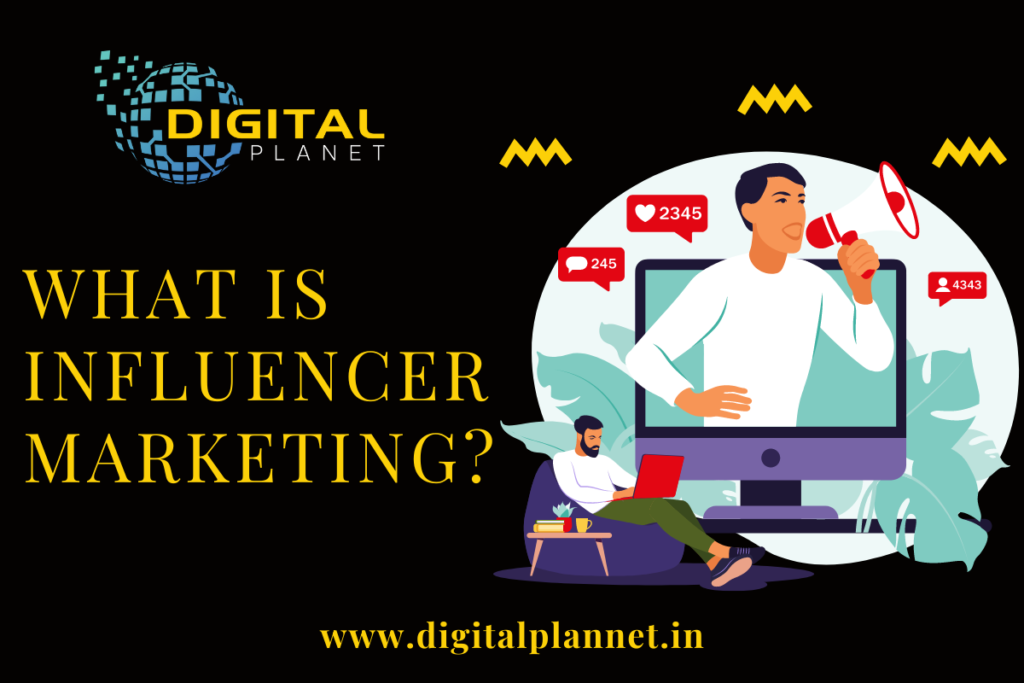
Influencer marketing is a strategic approach in digital marketing where brands collaborate with individuals who have a significant online following to promote their products or services. These influencers, who are often seen as experts or trusted figures within a specific niche, leverage their social media platforms, blogs, or YouTube channels to endorse brands to their audience. By doing so, they help increase brand awareness, drive engagement, and boost sales through authentic and relatable content.
Influencer marketing capitalizes on the influencers’ ability to connect with their followers on a personal level, making recommendations more impactful than traditional advertising methods. This marketing strategy involves identifying the right influencers, crafting compelling campaigns, and measuring the success through various metrics like engagement rates, reach, and conversions, ensuring a high return on investment for brands.
Why Influencer Marketing is important for Skincare Brands?
Influencer marketing is crucial for skincare brands because it leverages the credibility and reach of influencers to build trust and authenticity. Skincare decisions are often based on personal recommendations and visible results, making influencers an ideal conduit for showcasing products. When influencers share their genuine experiences and results with skincare products, their followers are more likely to trust and try those products themselves.
This type of marketing not only boosts brand awareness but also drives higher engagement and conversion rates. Influencers can effectively demonstrate product usage, highlight benefits, and address common skincare concerns, thereby educating and persuading potential customers. Additionally, influencer marketing helps skincare brands tap into new and diverse audiences, enhancing their reach and impact in a highly competitive market.
10 Game-Changing Influencer Marketing Tips Every Skincare Brand Needs to Know:
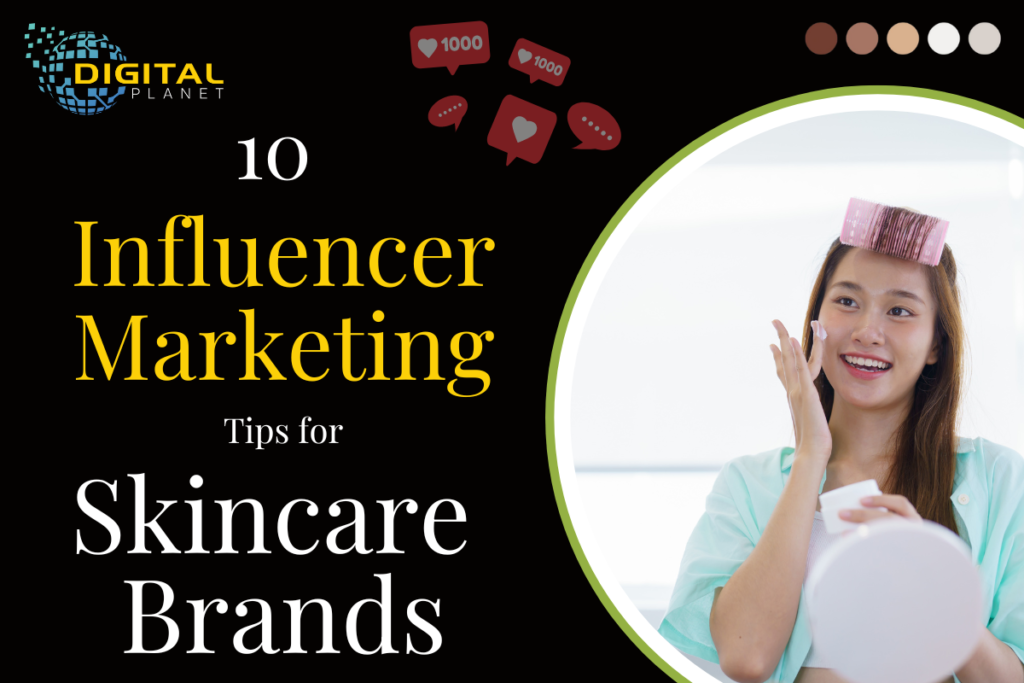
In today’s digital age, influencer marketing has become an essential strategy for skincare brands aiming to enhance their visibility and engagement. By leveraging the reach and credibility of influencers, skincare brands can effectively communicate their message to a targeted audience. Here are ten game-changing tips to elevate your influencer marketing strategy.
1. Identify the Right Influencers:
Selecting the right influencers is crucial for your campaign’s success. Look for influencers whose audience aligns with your target market. Use tools like BuzzSumo or Influencity to analyze their engagement rates, follower demographics, and content relevance. Micro-influencers (those with 10k-100k followers) often have more engaged audiences than mega-influencers.
2. Foster Authentic Relationships:
Building authentic relationships with influencers can lead to more genuine endorsements. Engage with them on social media, comment on their posts, and understand their interests. When influencers believe in your product, their promotion will feel more authentic to their followers.
3. Set Clear Objectives and KPIs:
Before launching your campaign, define your objectives and key performance indicators (KPIs). Whether you aim to increase brand awareness, drive sales, or boost engagement, having clear goals will help you measure the campaign’s success. KPIs could include engagement rates, conversion rates, or reach.
4. Create Compelling Content:
Content is king in influencer marketing. Collaborate with influencers to create **high-quality content** that resonates with their audience. This could include tutorials, reviews, unboxing videos, or skincare routines. Ensure that the content aligns with your brand’s voice and values.
5. Leverage User-Generated Content:
Encourage influencers and their followers to create and share their own content featuring your products. **User-generated content (UGC)** can enhance credibility and trust, as it shows real people benefiting from your products. Repost UGC on your brand’s social media channels to build a community around your brand.
6. Utilize Multiple Platforms:
Don’t limit your influencer marketing efforts to one platform. While Instagram and YouTube are popular for beauty and skincare, consider leveraging TikTok, Pinterest, and blogs. Each platform has its unique audience and content style, offering diverse opportunities for engagement.
7. Run Giveaway Campaigns:
Giveaways are an effective way to increase brand visibility and engagement. Partner with influencers to run giveaway campaigns where followers can win your products. This strategy can quickly grow your follower base and create buzz around your brand.
8. Track and Analyze Performance:
Regularly track and analyze the performance of your influencer marketing campaigns. Use analytics tools to monitor metrics such as engagement rates, click-through rates, and conversions. This data will help you understand what works and what doesn’t, allowing you to refine your strategy.
9. Stay Compliant with Regulations:
Ensure your influencer marketing campaigns comply with advertising regulations. Influencers must disclose sponsored content to maintain transparency with their followers. Familiarize yourself with guidelines from bodies like the Federal Trade Commission (FTC) to avoid legal issues.
10. Invest in Long-Term Partnerships:
Long-term partnerships with influencers can be more effective than one-off campaigns. Consistent promotion by the same influencer can build stronger brand loyalty and trust among their followers. Consider creating ambassador programs where influencers become the face of your brand over an extended period.
5 successful stories of influencer marketing for skincare brands:
Five successful stories of influencer marketing for skincare brands illustrate how strategic partnerships with influencers can lead to remarkable brand growth and engagement.
1. GLOSSIER:
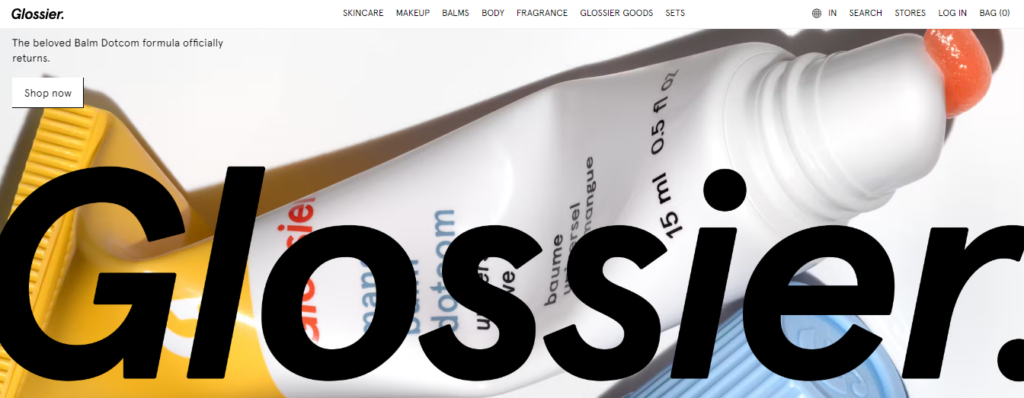
Glossier built its brand by collaborating with micro-influencers and everyday users who shared their genuine experiences and created buzz through authentic, user-generated content. This grassroots approach fostered a loyal community and propelled the brand to iconic status.
2. DRUNK ELEPHANT:
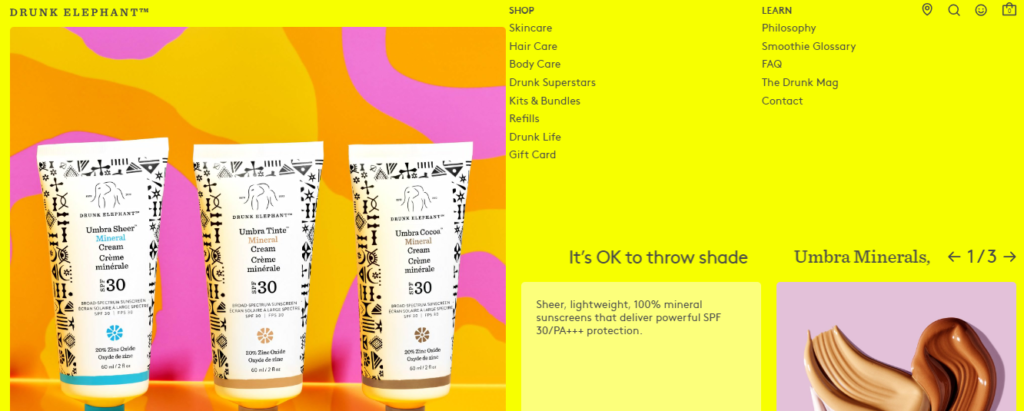
Drunk Elephant partnered with beauty influencers like Hyram Yarbro, who provided detailed reviews and skincare routines featuring the brand’s products. This authentic endorsement helped build trust and drove significant sales growth.
3. THE ORDINARY:
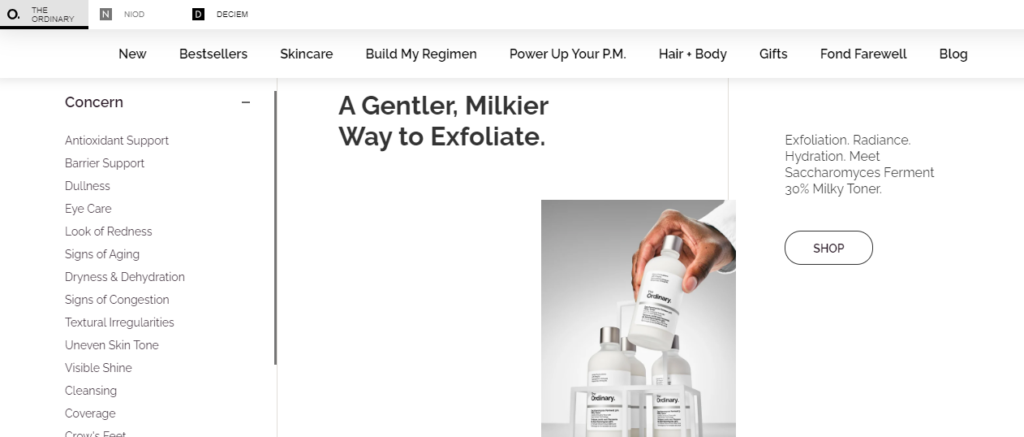
The Ordinary leveraged influencers to demystify their science-driven products. Influencers created educational content that simplified complex skincare ingredients, making them accessible and appealing to a wider audience, which significantly boosted the brand’s popularity.
4. NEAUTROGENA:
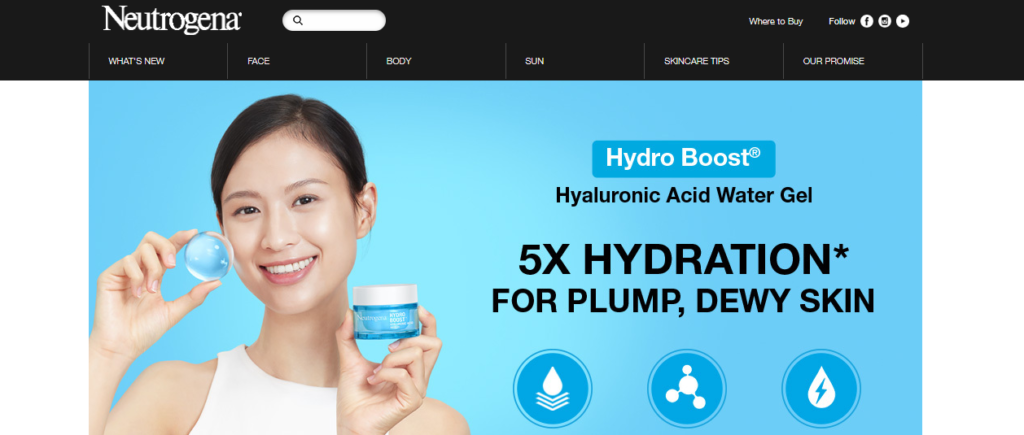
Neutrogena’s #SeeWhatsPossible campaign involved diverse influencers who shared personal skincare stories and journeys, resonating deeply with a broad audience. This inclusivity and authenticity enhanced the brand’s trust and visibility.
5. OLAY:
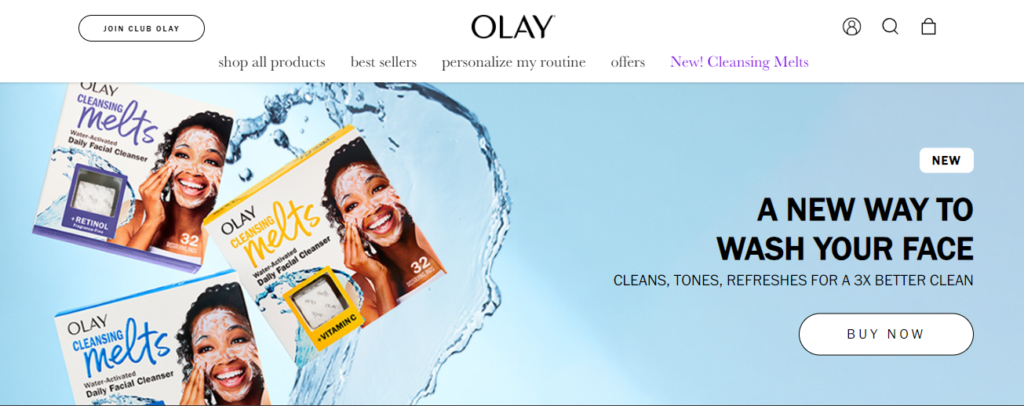
Olay’s #Olay28DayChallenge was a highly engaging campaign where influencers documented their skincare transformations over 28 days. This real-time, result-driven approach captivated followers and encouraged them to join the challenge, resulting in increased engagement and product sales.
These stories highlight the effectiveness of influencer marketing in building trust, educating consumers, and driving remarkable success in the skincare industry.
Conclusion:
Influencer marketing offers immense potential for skincare brands to connect with their audience authentically and effectively. By identifying the right influencers, creating compelling content, leveraging multiple platforms, and tracking performance, you can maximize the impact of your campaigns. Building long-term relationships and staying compliant with regulations further enhances your strategy, ensuring sustainable success.

